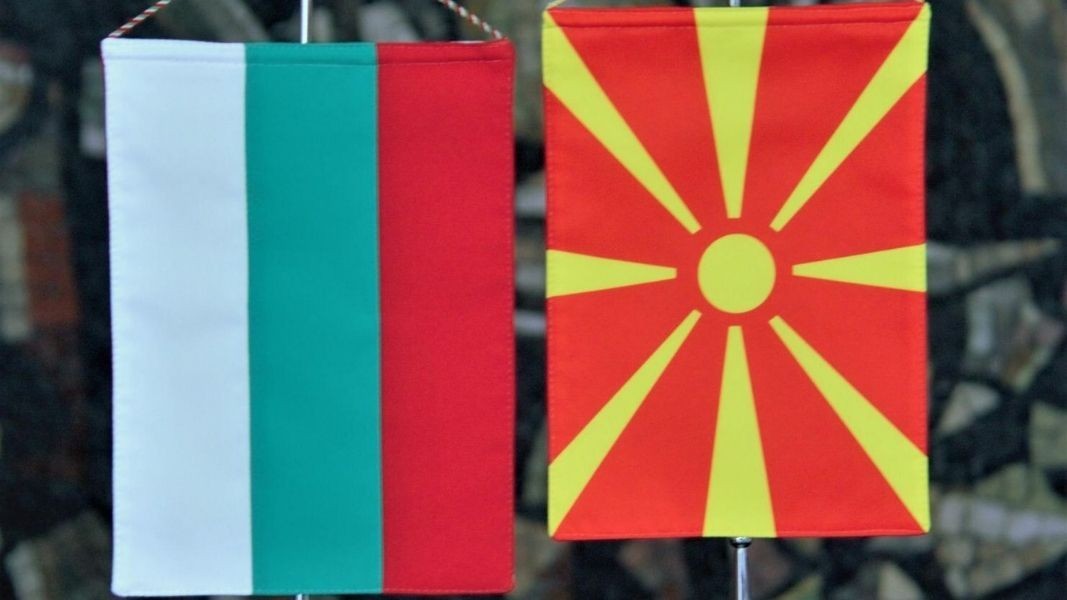North Macedonia is a landlocked country in between Albania, Kosovo, Servia, Bulgaria and Greece that has been attempting to join the European Union (or the European Economic Community as it was known back then) for the last 30 years.
Why is it taking so long and why is the problem not likely to be sorted anytime soon? We will be thoroughly delving into this question in this article.
Historical Background
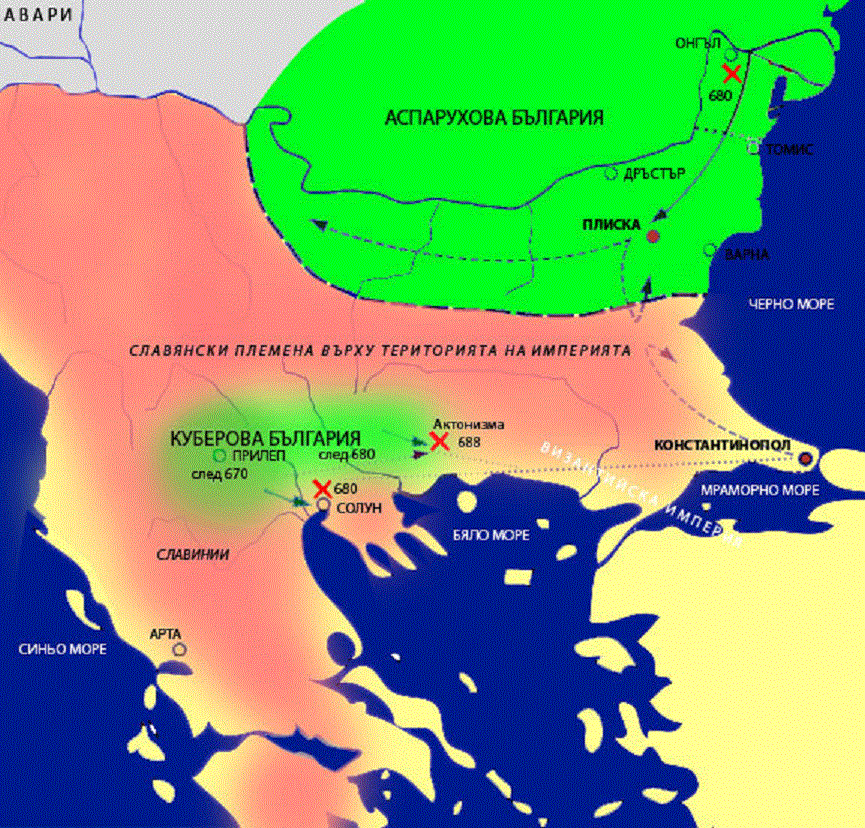
Early Period
Bulgarians have had a very long presence in what is modern-day North Macedonia, since the year 670 AD, the Bulgars who are the ancestors of the modern-day Bulgarians were led by Khan Kuber into the region of Macedonia and in 680 ended up as far as present-day Thessaloniki.
During that time in the region of Macedonia was populated by Slavic tribes known as the Sklaviniai as well as Avars and Greeks. By 837 AD, the Slavic tribes were absorbed by the First Bulgarian Empire which was founded by Turkic people known as the Bulgars who although were much smaller in numbers were united which allowed them to conquer the much larger for of Slavs who were disunited in hundreds of different tribes.
The Bulgars ended up integrating themselves into Slavic culture and adopted Orthodox Christianity which was already a popular religion of many of the Slavs in the Balkans thanks to Greek Orthodox missionary work.
Eventually the capital of the First Bulgarian Empire was located in multiple cities in the region of Macedonia such as Skopje, Bitola and Ohrid. The cities of Bitola and Ohrid became major centers of Bulgarian language, religion and culture.
Ottoman Period

Following a tug of war between multiple empires such as the Serbian Empire, the First & Second Bulgarian Empire and the Byzantium Empire over the Balkans. The Ottoman Empire came into the picture, they were much more numerous and battle hardened which saw them quickly create one of the largest empires in history.
In 1430, the city of Thessaloniki also known as Solun was conquered by the Ottomans with the rest of Macedonia quickly falling under Ottoman control. What is today known as North Macedonia would remain a part of the Ottoman Empire until the 30th of May 1913 when it was annexed by Serbia.
Attempts at Serbianization
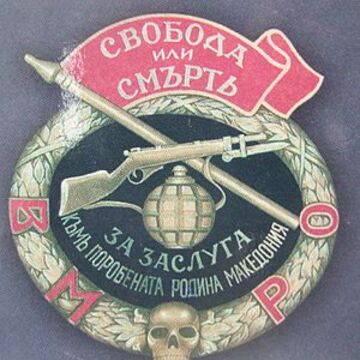
Following the annexation of Vardar Macedonia by Serbia, 641 Bulgarian schools and 761 Bulgarian churches were shut down by Serbian authorities. The use of Macedonian Bulgarian dialects and standard Bulgarian were banned. Furthermore, the celebration of the Ilinden-Preobrazhenie Uprising was also banned, Ilinden-Preobrazhenie was an uprising by Bulgarians supported by Aromanians against Ottoman Rule that took place in the summer and autumn of 1903.
All of this was an attempt at Serbianization of the Slav majority in Vardar Macedonia that identified as Macedonian Bulgarians. This policy of Serbianization howerver was not a major success and in part led to the Ohrid–Debar uprising which was a revolt by Bulgarians and Albanians against Serbian rule in Vardar Macedonia.
Macedonism
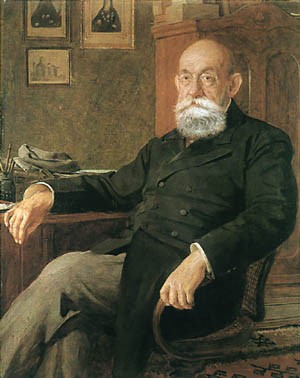
The political philosophy of ‘Macedonism’ is a term used by international scholars and historians as a word to describe the political belief that Macedonians are distinct from Bulgarians.
The idea of Macedonian autonomy and later an independent ethnic Macedonian identity is an idea that traces its origins to the 19th century. During that time Bulgaria had achieved independence from the Ottoman Empire, however, there were still parts of the Ottoman Empire with majority ethnic Bulgarian populations such as Rumelia which eventually was absorbed into Bulgaria and also parts of the regions of Thrace and Macedonia.
The Bulgarians in Macedonia known as Macedonian Bulgarians felt forgotten and neglected. This led to certain figures, one of the most famous of which being Georgi Pulevski to start to promote the idea of ethnic Macedonians different from the Greeks, Serbs and Bulgarians. The fluidity of identity in the Balkans is well portrayed in the fact that Pulevski identified as an ethnic Macedonian, a Serb and a Bulgarian throughout his life. Furthermore there are letters from Pulevski in which he expresses his regrets in the failure of unification between Bulgaria and Macedonia. To add to this, Pulevski also fought in Bulgarian volunteer forces and armies multiple times.
Another frequently cited promoter of Macedonism is Krste Misirkov, he was the first person to try and codify the Slavic Macedonian language. Born in modern-day Greece, as a young adult he received a scholarship from the Saint Sava society which was an organization sponsored by the Serbian government to promote macedonism in order to weaken the Bulgarian ethnic identity. Eventually, Misirkov rebelled against the Serbian propaganda and moved from Belgrade, Serbia to Sofia, Bulgaria.
Following that immediate period, he identified as Bulgarian, and wrote Bulgarian nationalist articles for the IMRO revolutionary organization. Then Misirkov switched back to identifying as an ethnic Macedonian and wrote the ‘On the Macedonian Matters’ in 1903 in Sofia. This was the first attempt ever to codify a Macedonian language. After that he served in the local government of the Bessarabian Bulgarians in Moldova. And even opened a Bulgarian language school in modern-day Ukraine
In 1919, Misirkov again began to identify as an ethnic Macedonian but this ended in the same year. From 1920 onwards he would continue to identify as a Bulgarian and even wrote propaganda that tried to encourage Slavs in Macedonia to identify as Bulgarians. In 1926, Krste Misirkov died in Sofia, Bulgaria. His burial was funded by the Bulgarian Ministry of Education due to his contribution to Bulgarian education.
There were without a doubt, individuals that identified as ethnic Macedonians during the 19th and 20th century however they were an absolute minority in the local populations. And even those individuals experienced inner conflict in whether they were ethnic Macedonians or something else. Additionally, there was a clear effort by Serbs authorities to promote Macedonism, an effort which was spearheaded by Serbian politician Stojan Novaković who famously said:
| “Since the Bulgarian idea, as everyone knows, has deep roots in Macedonia, I think it is almost impossible to be completely shaken by bringing only the Serbian idea against it. This idea, I am afraid, would not be able to push out the Bulgarian idea as a pure and bare opposite, and for this reason the Serbian idea would be aided by some ally who would be firmly against Bulgarianism and who would contain elements, which can attract the people and the people’s feelings to it, separating it from Bulgarianism. I see this ally in Macedonianism or in certain wisely set borders, a reflection of the Macedonian dialect and the Macedonian specifics. There is nothing more contrary to the Bulgarian tendencies than this – the Bulgarians cannot find themselves in a more irreconcilable position with anyone than Macedonianism.“ |
However, it wouldn’t be until after the end of the Second World War that Macedonism will truly become Yugoslavian policy.
Today Macedonism is a political philosophy closely related to antiquization that promotes the idea that there has been ethnic Macedonians for centuries and in some cases milleniums contrary to history evidence.
After the Second World War
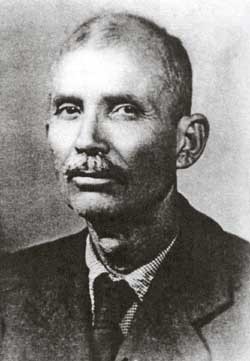
Bulgarian sentiment became a very big problem in Vardar Macedonia or South Serbia as it was called by many in the Kingdom of Yugoslavia at the time. The Bulgarians had not given up on in their opinion ‘liberating’ their compatriots in Vardar Macedonia (modern-day North Macedonia). The Bulgarians had fought two world wars with this being one of the main goals. Siding with two losing sides, one of which was Nazi Germany.
The new communist dictatorship led by Tito sought a permanent fix for this problem. And that permanent fix was removing everything Bulgarian and replacing it with a new Macedonian identity that had existed before that time but was not adopted by the majority of people. The process of destroying 12 centuries of Bulgarian presence in the Socialist Republic of Macedonia would not be a peaceful or ethical process.
Law for the Protection of Macedonian National Honour
Quickly after the end of the war, a new law was passed called the ‘Law for the Protection of Macedonian National Honour’. This law for enforced by a court controlled by the ironically named ASNOM (Anti-fascist Assembly for the National Liberation of Macedonia). This was following an event known as Bloody Christmas.
What this law did is that it made it illegal to be Bulgarian in the Socialist Republic of Macedonia. Citizens were not allowed to self-identify as Bulgarian and the Bulgarian standard language was banned from all public life and private use. Furthermore, the law was used to punish any pro-Bulgarian sentiments.
Some Bulgarian sources estimate that around 100,000 people with pro-Bulgarian sentiment were imprisoned and around 1,260 Bulgarians killed by early 1945. Notable figures of this repression of ethnic Bulgarians or individuals with pro-Bulgarian sentiment include Panko Brashnarov, Dimitar Vlahov, and Metodija Andonov-Čento.
This law remained until 1991, it was only repealed after the Republic of Macedonia became an independent country. Famous examples
Macedonian Language Codification
Additionally a new Macedonian language was codified in 1945 by ASNOM headed by Blaze Koneski who originated from a family with well-known pro-Serbian sentinment. Koneski’s mother’s uncle Gligor Sokolović was a voivode (leader) of a Serbian cheta (revolutionary group). Koneski has been criticized for Serbianizing the Macedonian language by Venko Markovski, a fellow member of the team that created the Macedonian language.
This language was quickly adopted and enforced in the Socialist Republic of Macedonia.
Macedonization in Blagoevgrad Province
After the USSR’s armies marched through Bulgaria, communism was also installed there. This led to a short period of friendly relations between Yugoslavia and the People’s Republic of Bulgaria. Bulgaria under the pressure of the USSR agreed to Macedonize the Bulgarians in Pirin Macedonia (now known as the Blagoevgrad District). This was made official in the 1947 Bled Accord. The reason why this happened is that during this period of time when the USSR’s and Yugoslavia’s friendly relations there was the plan that eventually Bulgaria will join Yugoslavia with the Blagoevgrad District became a part of the Socialist Republic of Macedonia. While Yugoslavia will give Bulgaria a region in Serbia known as the Western Outlands that was populated by mainly Bulgarians.
This process of Macedonization saw the identity of everyone in the district forcibly changed from Bulgarian to Macedonian on their identification documents. Moreover thousands of teachers of the new Macedonian language were sent into the Blagoevgrad District. As in the Socialist Republic of Macedonia, the Bulgarian government also passed a law in the Blagoevgrad District that made it legally binding to identify as an ethnic Macedonian.
There was unease about this policy in Bulgaria. And in 1956 following the souring of relations between the USSR and Yugoslavia, Bulgaria took the opportunity to denounce the 1947 Bled Accord and to end the Macedonization of its population in Pirin Macedonia. This saw the expulsion of the Yugoslavian teachers of Macedonian in Bulgaria and also made it legal again to declare yourself as Bulgarian in that region of Bulgaria.
Everything Bulgarian Must Go
Every sign of Bulgarianess in the Socialist Republic of Macedonia was systematically erased. The word ‘Bulgarian’ was removed from thousands of tombstones. Old church books were burned for having a Cyrillic script that looked ‘too Bulgarian’.
The word ‘Bulgarian’ was removed from poems, stories and plays. A famous example is the play ‘Macedonian Blood Wedding‘ where the words Bulgaria and Bulgarian were all replaced. We have attached a comparison of the original and the Macedonian version below.
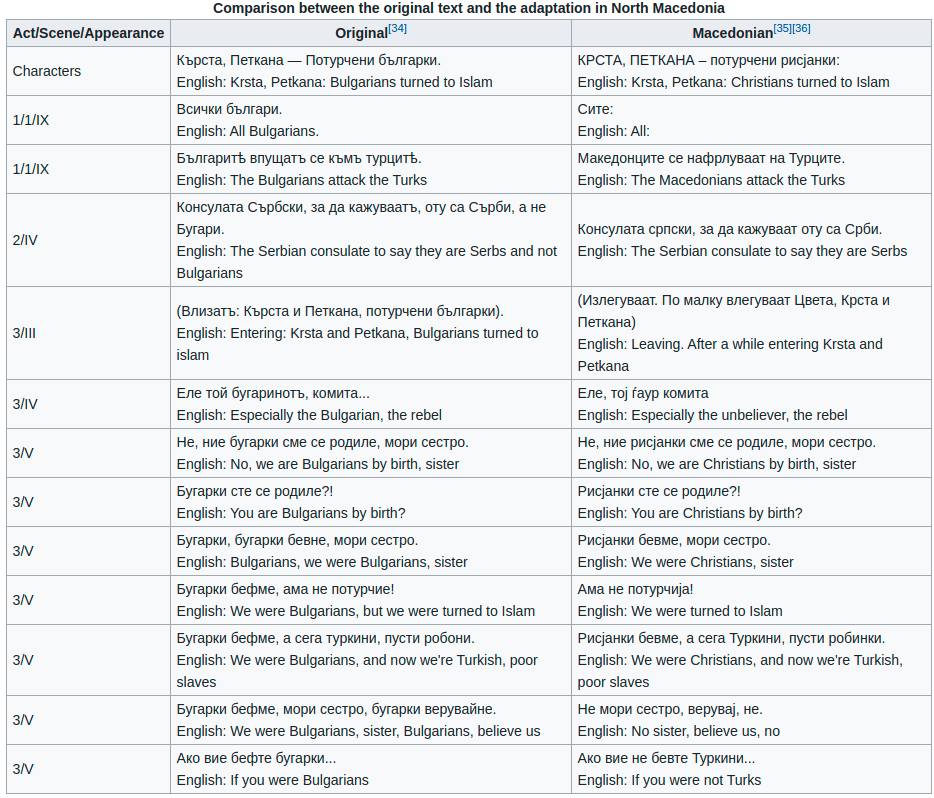
Furthermore the collection of folk songs published as ‘Bulgarian Folk Songs’ by the Miladinov brothers was renamed to ‘The Collection of the Miladinovs’. The First Bulgarian Empire was changed to Samuel’s Kingdom in Macedonian history books. Also the Bulgarian Men’s High School of Thessaloniki which was an important center of Bulgarian culture and revolution was renamed to Thessaloniki Men’s High School “St. Cyril and Methodius”.
Hundreds of historical figures that self-identified as Bulgarian became ethnic Macedonians even though there is no evidence of them ever identifying as ethnic Macedonians. These figures include Saint Naum and Samuel of Bulgaria. Even figures such as Dame Gruev who was the founder of Society Against Serbs and ordered assassinations of any he deemed an enemy to the Bulgarian cause is somehow an ethnic Macedonia. As is also Rayko Zhinzifov who didn’t accept the existence of a separate ethnic Macedonian identity became an ethnic Macedonian. This shows that facts did not matter, the goal was to deny the existence of Bulgarians in Macedonia.
Changing of Surnames
Hundreds of thousands of surnames were also Serbianized. Famous examples of this are ethnic Macedonian partisan Mihailo Apostolski who was born Mihail Mitev Apostolov. And also the current deputy president of SDSM, Radmila Shekerinska whose grandparents carried the surname Shekerinov/a.
Bulgaria’s Blockade to North Macedonia’s EU Accession
Arguably the last real obstacle to North Macedonia’s goal of joining the European Union is Bulgaria. After the two countries signed a Friendship Treaty in 2017, which was widely praised, many outside observers praised this positive development. However, they were delusional that this could be a simple fix to such as complicated and century-old issue known as the Macedonian Question.
Introduction
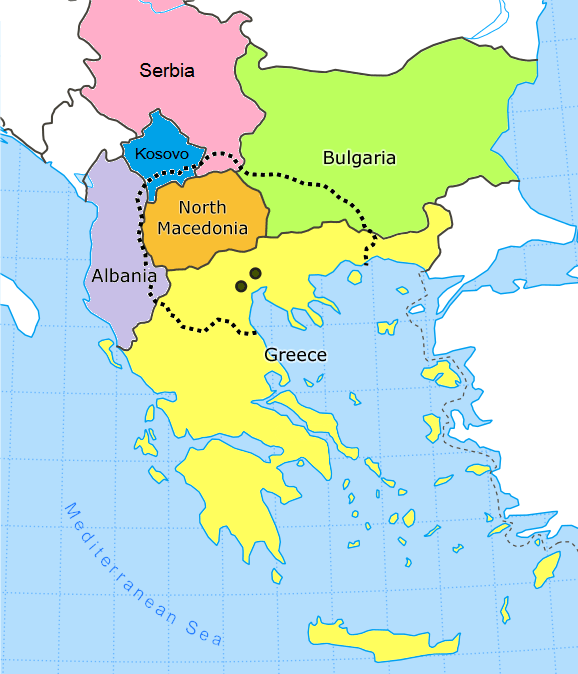
There is no point in beating around the bush, North Macedonia is a new country home to a new ethnic identity. North Macedonia has been an independent country since 1991. This is a big problem for many Macedonian nationalists who see this lack of history a problem to their ethnic identity.
Due to this the policy of historical revisionism that was a policy during the Socialist Republic of Macedonia remains to this day and is actually thriving in its own special way. Just take a look at the fiasco that Skopje 2014 is.
To this day, the Law for the Protection of Macedonian National Honour is denied in North Macedonia or the victims are described as ethnic Macedonian patriots fighting for an independent Macedonia. To this day in North Macedonia, hundreds of Bulgarians are according to Macedonian historiography ethnic Macedonians despite never identifying as such.
This is not North Macedonia’s first issue of this kind, it took North Macedonia 27 years to stop falsifying Greek history. This ended following the signing of the Prespa Agreement. And this was not without drama and attempts of sabotage as you will learn below.
Playing on Ignorance
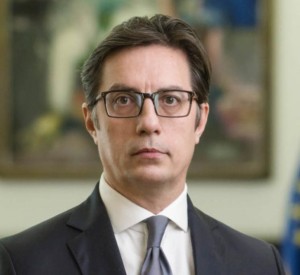
The North Macedonian ruling politicians are playing an interesting strategy, but at the same time not a very smart one. They are accusing Bulgaria of being a bully that does not accept the ethnic Macedonian identity, the Macedonian language and some go as far as to accuse Bulgaria of trying to bulgarise North Macedonia. Just take a look for yourself at this interview by Stevo Pendarovski with EUobserver.
Unfortunately, this happens to be a blatant lie, especially after Bulgarian Foreign Minister Ekaterina Zaharieva said “Bulgaria does not question the language and the modern identity of the population there” in multiple interviews such as this one.
It is pretty clear that the North Macedonian politicians are trying to play on the ignorance of their own people as well as with foreigners. Rather than addressing the historical fabrications and cultural appropriation they are currently going with the strategy of seeking sympathy by misportraying the issue.
This behavior has become such a big issue that reportedly the Bulgarian ruling coalition has decided to minimize their interaction with North Macedonian foreign minister Nikola Dimitrov due to what Bulgarian media describe as ‘two-faced behavior’ and one Bulgarian journalist said that Dimitrov is even ‘more dangerous than the coronavirus’. This is due to most-likely true rumors that Dimitrov has the habit of agreeing that historical revisionism is a problem in North Macedonia with Bulgarian politicians while at the same time telling EU bureaucrats that North Macedonia is being bullied by Bulgaria. This is ironic when Nikola Dimitrov’s father Dimitar Dimitrov wrote a history book where he talks about ethnic Macedonians should not be ashamed that they originate from Bulgarians.
Things got so bad, that the official Facebook page of the Ministry of Foreign Affairs of Bulgaria publicly made fun of Nikola Dimitrov’s false statements.
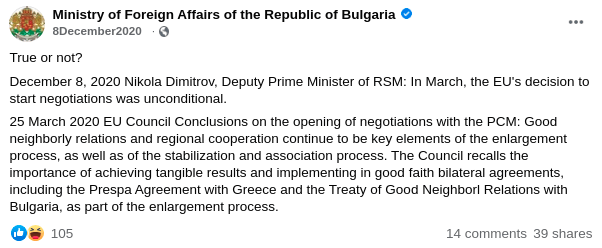
The attempt to portray Bulgaria as a country that hates North Macedonia or as a country that wants to do it harm is simply untrue. Bulgaria was the first country in the world to recognize the Republic of Macedonia. During Greece’s embargo of the Republic of Macedonia during the early 1990s, Bulgaria allowed Macedonia to export its goods through Bulgarian ports on the Black Sea. Furthermore, during the 2001 Albanian insurgency in Macedonia, Bulgaria donated 93 T-55 tanks, 108 heavy mortars, and other weaponry to do the Macedonian Army without wanting anything in return.
So What Does Bulgaria Want?
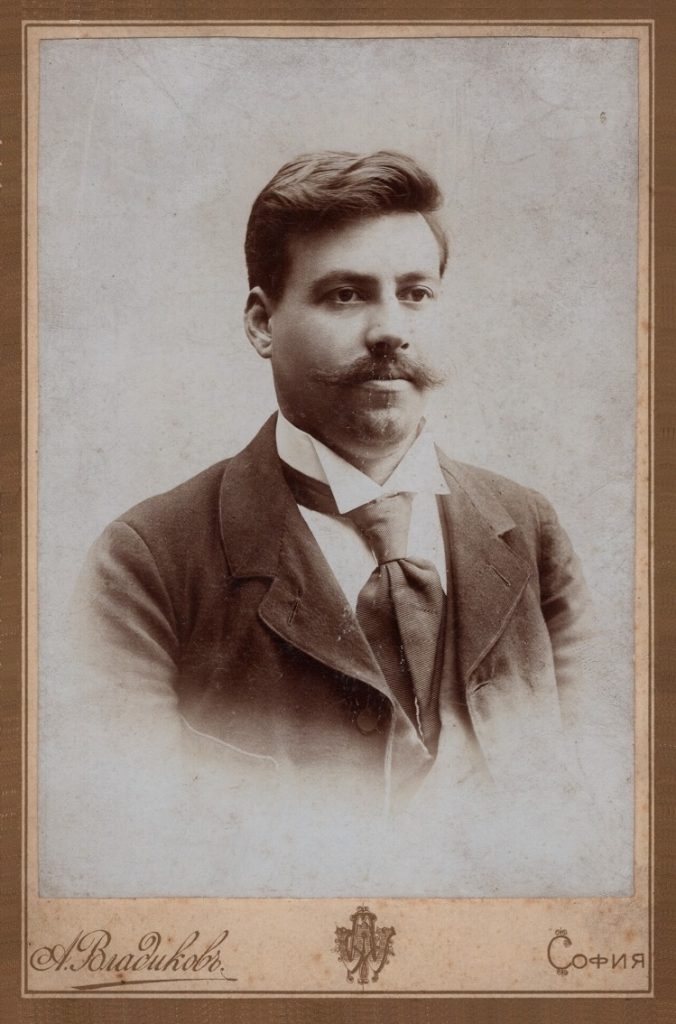
Bulgaria wants for the historical fabrications in North Macedonia to finally end. One of the main figures in this dispute is Gotse Delchev, a famous revolutionary that led the IMRO a Bulgarian revolutionary organization. Although the facts are clear that he was an ethnic Bulgarian, the issue is that after decades of propaganda in what is today North Macedonia, the public there just cannot accept the facts. And few smart politicians are willing to take the hit to admit that. Stevo Pendarovski, the president of North Macedonia, did say that Gotse Delchev was a Bulgarian but later retracted this statement, by saying that in his opinion Delchev pretended to be a Bulgarian in order to receive an education in Bulgaria and also that he was pressured to identify as a Bulgarian.
Despite attempts by some North Macedonian politicians to imply that Bulgaria does not accept the modern realities this is just not true. It is time for North Macedonia to accept the historical evidence. As well as stop denying the atrocities committed against Bulgarians on its territory.
Conclusion
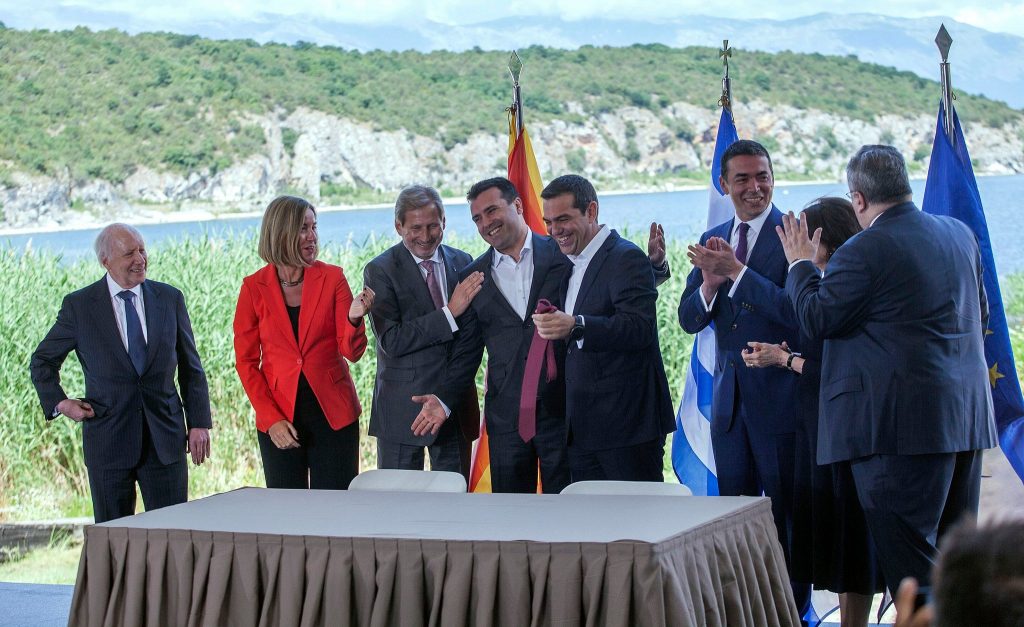
An estimated 1 in 4 Bulgarians in Bulgaria originate from refugees from the geographic region of Macedonia. For them especially, this is a very painful issue, the denial of their existence and history is a policy that was instigated by the Serbs and later solidified by Yugoslavia.
Many outside observers who are either not knowledgeable enough about this topic or just do not care brush this issue off as Bulgarian imperialism or nationalism. They are of course entitled to their own opinion, it will be much easier and quicker if Bulgaria just let North Macedonia in and ignored all of the appropriation and denial of Bulgarian history.
Such an action will only be a short term fix and it may even lead to bigger problems. This issue is very sensitive in Bulgaria, and simply telling Bulgarians to just roll over and allow such things to happen will only lead to big resentment in Bulgaria towards the European Union. According to a study conducted by the Bulgarian government, 84% of Bulgarians agree that North Macedonia should not join the EU without first putting an end to the theft of Bulgarian history.
Also, it is hard to understand what sort of benefit the accession of North Macedonia in its current state will have to the European Union. It is an unstable country that according to the Democracy Index is classed as a hybrid regime. How can a country where it is a state policy to fabricate history ever become a thriving democracy? The EU has enough issues with Hungary and Poland already.
It is also not great for the European Union’s image, if the EU is willing to allow in North Macedonia with the way it is currently behaving then they should also allow in Turkey without the need for them to recognize the Armenian genocide or Serbia without a need to recognize Kosovo.
We understand that some readers may have worries about bias in this article, therefore we ask you to please have a read through the sources that we have provided. Also to do a bit of extra reading on the Macedonian Question and the history of the region. We also recommend the Youtube channel Samuel’s Fortress. Also, it is important to note that Bulgaria is not perfect, there is historical revisionism that still goes on about the Turkic origins of the proto-Bulgarians/Bulgars, and also not enough attention is paid to the 11 thousand Jews in Bulgarian administered territories that were transported to their deaths in Nazi concentration camps. However, overall there is nowhere near as much historical revisionism as in North Macedonia.
For some reason, what should be some of the smartest people in North Macedonia, the leaders of the country, have not learned lessons from the dispute with Greece. That rather than playing the victim card, it is important to take action which in that case also was to do with historical revisionism.
As Nikola Dimitrov himself said ‘In order to have good neighbors, you also need to be a good neighbor’.
Sources:
https://en.wikipedia.org/wiki/Kuber#In_Macedonia
https://en.wikipedia.org/wiki/Macedonia_(region)
https://en.wikipedia.org/wiki/First_Bulgarian_Empire
https://en.wikipedia.org/wiki/Samuel_of_Bulgaria
https://en.wikipedia.org/wiki/First_Balkan_War
https://en.wikipedia.org/wiki/North_Macedonia
Banac, Ivo (1984). The National Question in Yugoslavia. Origins, History, Politics. London and Ithaka: Cornell University Press. ISBN 978-0801416750.
https://en.wikipedia.org/wiki/Ilinden%E2%80%93Preobrazhenie_Uprising
Ilinden left a durable trace in popular memories. It was commemorated by the diaspora in Bulgaria and all factions within the IMARO. A veteran organization was established in 1921…In the late 1930s, communists in Vardar Macedonia organized commemorations, defying the ban by the Serb authorities. Celebrations were institutionalized following the region’s annexation by Bulgaria in April 1941. For more see: Dimitar Bechev, (2009) Historical dictionary of the Republic of Macedonia, Scarecrow Press, p. 96, ISBN 978-0-8108-5565-6.
It is known that in 1918, at the height of the First World War and on the eve of the counter-offensive of the Entente troops on the Macedonian front, our country celebrated the 15th anniversary of the Ilinden-Preobrazhensko uprising. But little is known about the fact that this task is undertaken by the leader of IMRO Todor Alexandrov, assisted by the rector of Sofia University “St. Kliment Ohridski ”Prof. Georgi Shishkov and the then mayor of Krushevo Naum Tomalevski. For more see: Tsocho V. Bilyarski, In 1918 Todor Alexandrov organized the celebration of the Ilinden Uprising.
Appealing to this positive historical inheritance, the Regional Committee of the KPJ in Macedonia organised Ilinden demonstrations in the towns before the war, in 1939 and 1940, as the most effective way of activating nationalism. For more see: Stefano Bianchini and Marco Dogo as ed., The Balkans: National Identities in a Historical Perspective, Longo, 1998, p. 125, ISBN 8880631764.
https://en.wikipedia.org/wiki/Ohrid%E2%80%93Debar_uprising
https://en.wikipedia.org/wiki/Macedonian_nationalism
https://en.wikipedia.org/wiki/Georgi_Pulevski
https://en.wikipedia.org/wiki/Krste_Misirkov
https://en.wikipedia.org/wiki/Stojan_Novakovi%C4%87
https://en.wikipedia.org/wiki/Law_for_the_Protection_of_Macedonian_National_Honour
Bulgarian sources assert that thousands lost their lives due to this cause after 1944 , and that more than 100 , 000 people were imprisoned under the law for the protection of Macedonian national honour ‘for opposing the new ethnogenesis’. 1,260 leading Bulgarians were allegedly killed in Skopje, Veles, Kumanovo, Prilep, Bitola and Stip… For more see: Hugh Poulton, Who are the Macedonians? C. Hurst & Co. Publishers, 2000, ISBN 1850655340, p. 118.
John Phillips, Macedonia: Warlords and Rebels in the Balkans. (2004) I.B. Tauris (publisher), ISBN 186064841X, p. 40.
https://en.wikipedia.org/wiki/Bla%C5%BEe_Koneski
https://en.wikipedia.org/wiki/Anti-fascist_Assembly_for_the_National_Liberation_of_Macedonia
https://en.wikipedia.org/wiki/Bloody_Christmas_(1945)
https://en.wikipedia.org/wiki/Metodija_Andonov-%C4%8Cento
https://en.wikipedia.org/wiki/Panko_Brashnarov
https://en.wikipedia.org/wiki/Dimitar_Vlahov
https://en.wikipedia.org/wiki/Venko_Markovski
https://en.wikipedia.org/wiki/Historiography_in_North_Macedonia
https://en.wikipedia.org/wiki/Georgi_Dimitrov
https://en.wikipedia.org/wiki/Macedonian_Blood_Wedding
https://en.wikipedia.org/wiki/Bulgarian_Folk_Songs
https://en.wikipedia.org/wiki/Dame_Gruev
https://en.wikipedia.org/wiki/Society_against_Serbs
https://en.wikipedia.org/wiki/Bled_agreement_(1947)
https://en.wikipedia.org/wiki/Skopje_2014
https://en.wikipedia.org/wiki/Prespa_agreement

